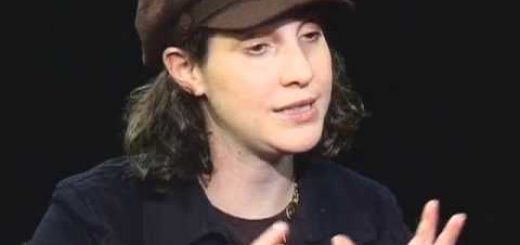Harry Miers and the Israeli Reform Problem – Part I

Harry Miers?! Relax, I’ll explain myself in due course.
But first, Yaakov Menken is right on the mark — David Forman isn’t just another garden-variety Reform clergyperson. He is a former director of the Israel office of the Union of American Hebrew Congregations (that’s the recently discarded former name for the American Reform movement; hey, if 613 mitzvos are expendable, an organizational name of a mere century’s vintage ought fair no better). In fairness, though, he’s quite the outspoken gadfly within Reform, whose stinging critiques thereof I have cited on occasion — in my book, at least, that’s certainly not lashon hara.
Given Forman’s prominence and, more importantly, his long knowledge of the Israeli scene, it’s worthwhile sharing some more of the bon mots to be found in the JPost article to which Rabbi Menken referred. Here, then, a sampling:
“After all, both [Conservatism and Reform] in the Jewish state are still marginal religious streams, comprised largely, with rare exception, of Anglo-Jewish populations. In fact, there are probably no more than 5,000 dues-paying members of Reform and Conservative synagogues throughout the country.”
“It is convenient for us to blame our unequal treatment by the government for our limited numbers. But, it is highly doubtful that if we were granted full rights tomorrow our membership would grow significantly. We already know that those who have passed through our bar/bat mitzva ‘factories,’ those who have been married by our rabbis and those who send their children to our kindergartens rarely join our congregations.”
And one more . . .
“Further, the support for both movements from our Diaspora brothers and sisters is minimal. . . . A national campaign two years ago for every Reform household in North America to contribute a pitiful $18 toward the Israel Reform Movement has still not gotten off the ground.”
The thrust of Forman’s piece is a plea for the twin heterodoxies to merge, since they are, on almost all counts, indistinguishable anyway. It never ceases to amaze that the very same critiques of those movements that are so utterly reviled when put forth by an Orthodox individual, are received far more hospitably when enunciated by a figure from the heterodox universe, even if a member of a different movement.
In 1998, Clifford Librach (another Reform clergyman who can be counted upon to, as they say, speak truth to Reform power) penned a piece in Commentary entitled “Does Conservative Judaism Have a Future?”, the thesis of which was that Reform is a “way-station for Conservative Jews on the road to religious oblivion” with Conservative Judaism “slipping away, first into Reform, and then into the moral vacuum of secular America.”
True enough, the article did elicit howls of protest in the letters section from various prominent Jewish figures, to the point that, in a subsequent issue, Librach began his response to his critics with these delightful words: “Oh, dear. The institutional bureaucrats are upset.” But he then goes on to note that “is it not odd that the current president of the Rabbinical Assembly, the association of Conservative rabbis (or, as it’s commonly known, RA — hey, I’m not making this up! -EK), has, in the RA’s newsletter, singled out my article for attention and asked that the subject it discusses be made the focus of continuing professional review and debate?”
So Reform types like Forman and Librach can get away with questioning Conservatism’s future and referring to Reform and Conservatism as one indistinguishable mush, but Heaven help the Ortho guy who attempts the same. This itself is evidence of just how little separates these two groups, since, after all, internal criticism is always received differently than that coming from without . . .
Returning to the substance of Forman’s article, I believe that a partial explanation for the sorry current state and future prognosis of these movements in Israel as he describes them, is to be found in another recent JPost article, this one by David Golinkin, president of Israeli Conservatism’s Schechter Institute.
Stay tuned for Part II.



Recent Comments